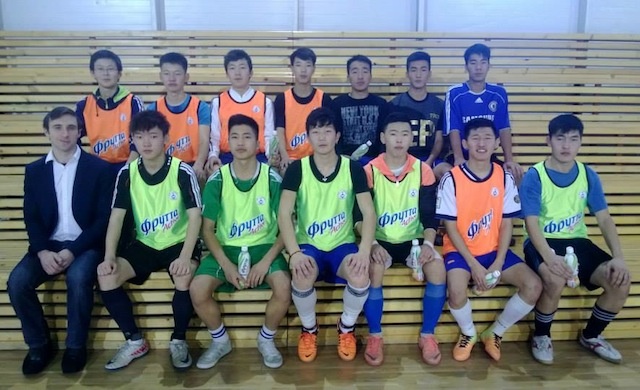
Advertisement
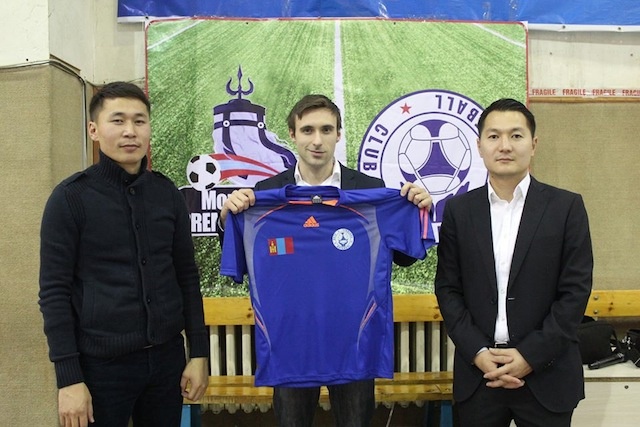
Paul Watson: I wouldn’t say that we were surprised; we were always secretly hoping that another opportunity like this would come up. The manner in which it did come up was delightfully random and reminiscent of the way Pohnpei started, which was when the head of their old FA had coincidentally moved to Chingford and we met up with him.How's the new team coming along?
I got to Mongolia in mid-October, and since then we've chosen a name—Bayangol FC—and a logo, gotten a kit, and found a sponsor, Frutta Active, which is one of the main soft drinks here. Most importantly, we've chosen a squad of players. The deal with the sponsor was linked to a TV channel, NTV, which is making a reality TV show called Dream Team about the building of the team. The players were selected by holding two open tryouts in the capital city of Ulan Bator. So far we have chosen 20 people, but more may be added soon.
Matthew Conrad: Paul has done a lot of amazing groundwork getting a preliminary squad together. It hasn’t been easy, as the standard start-up problems such as funding and sponsorship take up a lot of time. Plus, it's winter, and Mongolia during winter is no joke.
Advertisement
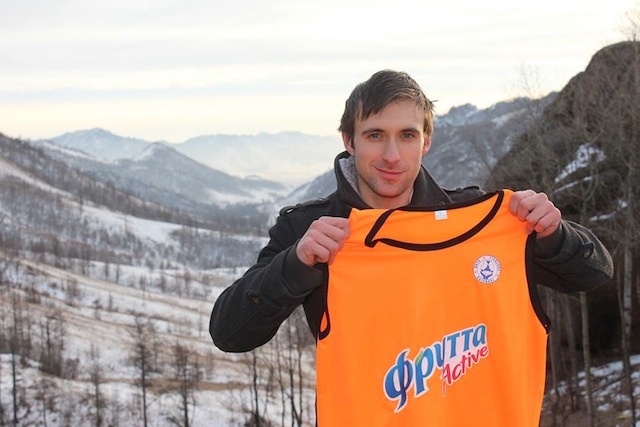
Paul: It's actually been surprisingly mild so far, but it can be hard to deal with. Until late March or early April, we’ll be training indoors, using a futsal gym. But the fact that there aren't any covered 11-a-side soccer facilities in Mongolia is a vast problem and one of the key reasons why the national team struggles despite its clear talent. They are at a big disadvantage over other Asian sides, as there are several months of the year that soccer can’t be played, only futsal, which is more or less a different sport. It’s a variant of soccer that is played indoors on a smaller field. I was at a meeting two days ago about a proposal to build an out-of-town covered facility, which would be a great step forward.What would you say are the other main challenges?
Matt: If we pull this off it’ll be a miracle. In Pohnpei, at least people spoke English.
Paul: It’s certainly problematic that people don’t speak English; I’ve been somewhat surprised by how few do. Among the players, there is one fluent English speaker, who went to school in the US. Coaching via a translator is an interesting challenge when trying to get across tactics; you really have to make sure your translator gets it before anyone else can. Finance has also been tough and remains an issue. The idea is to set up Mongolia’s first proper professional team, but making a change like that in a sport that remains semi-pro is tough. We are working on a shoestring budget at present, but have now attracted one big sponsor.
Advertisement
Not in the way there was in Pohnpei. The players have been very responsive and we have a local who acts as a go-between and can explain things. I was told to shave more often and dress better because that can be quite a big deal here with regard to being seen as an authority figure. It’s a bit different to the flip-flops and shorts in Pohnpei.
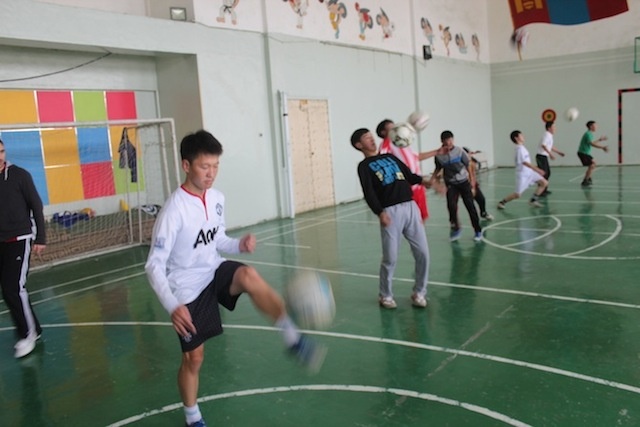
This project is a big leap forward for us, in terms of professionalism. The whole point of it is to demonstrate the way a professional team runs in the UK. I want to implement structured training and develop players in a way that allows them to get opportunities in the game all over the globe and also to improve the national team’s fortunes. I want to bring in more sport science, which is rarely used here, and also bring in video analyses, strength and conditioning, and a focus on training with the ball. These are all established concepts in Europe, but not here.Are many people actually into soccer over there?
Yeah, soccer is massive. In fact, it's become the main sport that people watch here. The English Premier League is everywhere, and there are fan clubs with thousands of members for Manchester United, Liverpool, Real Madrid, Chelsea, etc. In fact, I’m off to a fan club event tomorrow night, which will be fun. The problem is that soccer at a professional level is seen as something foreign that's watched but can’t be imitated by Mongolians. That shouldn’t be the case at all; Mongolia has some extremely talented players and kids who are very gifted athletically. They should believe that they can reach the highest level. This country needs some home-grown soccer role models, and Bayangol FC intends to provide them.
Advertisement
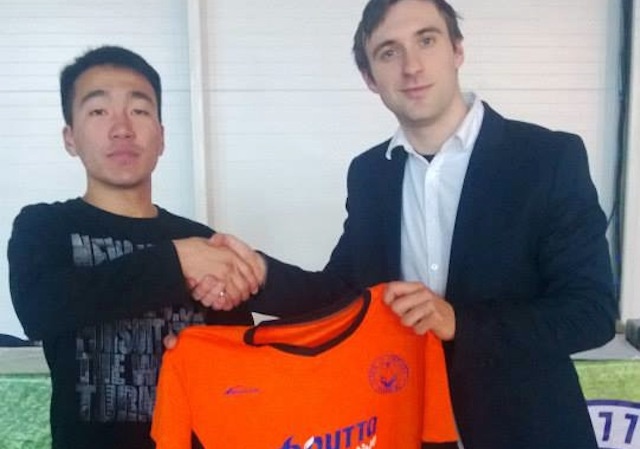
I don’t think that’s likely. The nomadic tradition is disappearing and those who live that way have very little time for soccer. One of our players did live in the Gobi Desert before he joined us, though.How well do you think coaching in Pohnpei has prepared you for coaching in Mongolia?
So far, it's been a very good grounding. Things here can be quite confusing and plans can change quite quickly, which reminds me of Pohnpei. But, as I said, this is a step up—and the work and studying that I put in during the three years since Pohnpei will help. I've also been lucky enough to have the support of some fantastic coaches in the British coaching community. A coach called Hugo Langton, who I met after Pohnpei, is especially supportive. He works at Bromley FC, which is on the up and up, and he's gone out of his way to make sure I’m prepared. As soon as I heard about the job, he said he’d do whatever he could to make sure I was ready for the challenge. I know I can call on him if I ever need ideas.Cool. Thanks guys, and good luck!A film about Paul and Matt's experiences called The Soccermen will be released next year, and Paul has a book out about the pair's time in Micronesia titled Up Pohnpei, which you can buy here.